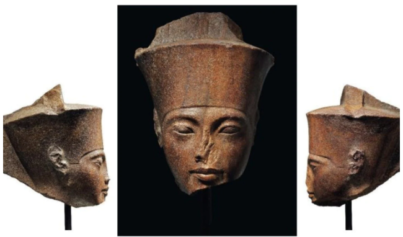
The judge, in the city of Minya, refused to allow the defense to complete its cases or even admit the defendants’ families or lawyers to court for the verdict, they claimed afterwards.
The sentence, if it is carried out, will be the biggest mass execution from a single case in history.
Legal experts say it is likely to be either overturned on appeal – rejected by the Grand Mufti, to whom all death penalties are referred – or commuted by the president, not least because of the international consequences of such an event.
But it brought widespread condemnation from inside the country and abroad. Amnesty International described it as “grotesque”. “Many will question whether Egypt’s criminal justice system has indeed anything to do with justice,” Hassiba Hadj Sahraoui, its deputy Middle East director, said.
The case was only one of a series of mass trials of the thousands of people arrested following protests and sit-ins organized by supporters of Mohammed Morsi, the deposed president, after the coup last July. Another case, also in Minya, will begin on Tuesday to try 683 people, including Mohammed Badie, the supreme guide to Morsi’s Muslim Brotherhood.
Minya province saw some of the worst unrest in the immediate aftermath of events in Cairo on Aug. 14 last year, when the military and police killed hundreds of people while clearing two sit-ins set up in protest against the coup. Islamist mobs responded by attacking churches, Christian-owned businesses and government buildings. They burned police stations, killing several officers.
The 545 defendants in Monday’s case – not all Brotherhood members – were accused en masse of the murder of a policeman in the town of Matay, incitement to murder, damaging public and private property and stealing government weapons. Sixteen were acquitted.
At the first hearing of the case on Saturday, the judge, Said Youssef, rejected a request by the defense for a postponement to allow the large number of papers involved to be scrutinized, the lawyers said.
The trial then broke down into chaotic scenes, with defendants, who were crammed into the court’s caged dock, and the lawyers chanting slogans at the judge. He then brought in security to silence them.
Only some of the defendants were in court, with others kept in police cells for the hearing. About 400 are not even in custody, having not been arrested or having gone on the run.
At the hearing, security blockaded the entrance to the court to prevent anyone, including the lawyers, from entering.
“We were not allowed to attend,” one lawyer, Ahmed Shabeeb, said. “The verdict was a personal reaction, a stubborn response to lawyers who applied to remove the judge from the case. The sentence violated all legal rules.”
Read the full story at telegraph.co.uk


